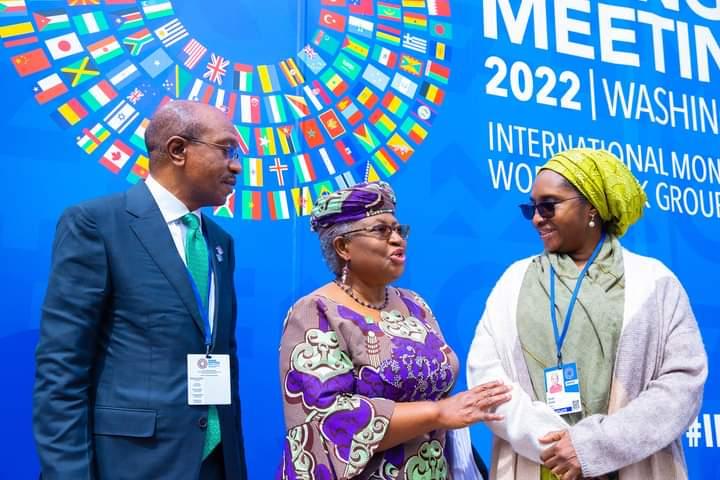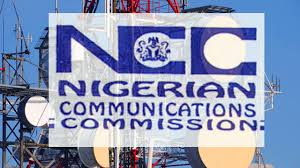By Sonny Aragba-Akpore
Without sounding pessimistic or proclaiming a death-knell, the telecommunications sector appears troubled.
Apart from less than encouraging quality of service for voice and equally unpleasant internet connectivity,there are very many reasons to admit that the sector is not on good standing.
On the surface,we blame the recurring poor quality of service on the Mobile Network Operators (MNOs) and to some extent ,industry regulator,the Nigerian Communications Commission (NCC).
All of us have had our own fair share of poor services especially data depletion even when a mobile phone is not in use.
But the MNOs recently changed the narrative when they released what could be likened to a catalogue of woes describing them as economic headwinds that rear their heads like the menacing albatross in Samuel Taylor Coleridge,s “The Rime of the Ancient Mariner.”
And with dwindling investments to maintain and improve infrastructure in the telecommunications industry, the MNOs recently sent a save our souls (SOS) working paper to sector regulator,the NCC.
Essentially by paucity of funds through Direct Foreign Investments ( DFIs),to boost Capital Expenditure (CAPEX) in the face of rising Operational Expenditure (OPEX), the operators lament that unless something is done and quickly too,quality of services may continue to decline.
Writing under the aegis of Association of Licenced Telecoms Operators of Nigeria (ALTON),the umbrella body for all operators in Nigeria and signed by its Chairman,Gbenga Adebayo and Chief Executive Officers ( CEOs) of MTN ,Globacom,Airtel,9Mobile among others, the operators listed a tale of troubles they have to contend with and want the regulator to put in place measures to cushion the situation if service providers are to remain in business and continue to provide quality services.
Lamenting on “the state of Nigerian telecommunications industry – repositioning the industry for sustainable growth and development “. the operators listed macroeconomic problems and rising inflation,debts owed operators for Unstructured Supplementary Service Data (USSD) by Deposit Money Banks (DMBs),declining investments in the sector,unavailable DFIs,
bureaucracy and increasing over regulation of the industry,and reduced investments in the sector among others ,saying if something urgent is not done,quality of services will suffer further and may go below where they are now.
The sector is believed to have been significantly plagued by a myriad of macroeconomic challenges especially in recent years “due to the resulting exponential increase in broad business costs.”the operators wrote and g
went ahead to catalogue some including but not limited to:
upward trajectory in inflation rate from 11.98% in 2019 to 21.34% in 2022 and 27.33% as at October 2023;The inflation has hit 28.5% now as we write.
They also listed the rapid depreciation of the Naira evidenced by the recent upward movement at a rate of 68.5% from N461/$1 in December 2022 to N777/US$ as at the end of September 2023 and now in the neighborhood of N1,300 to a dollar.
They are equally worried about the sustained rise in energy prices with diesel currently retailing at an average price of N1,004.98/litre from N250/litre in January 2022.
Energy costs alone,they wrote,represent about >40% of Mobile Network Operators’ “operating expenses,added to tightening external financing conditions, higher debt service payments, and increased pressure on the Nigerian FOREX market,” as the operators reasoned “have equally aided a significant increase in the cost of production which has-jeopardized MNOs’ capacity to maintain healthy margins in such a capital-intensive and FOREX-dependent industry as ours.”
Despite these adverse economic headwinds, “the telecommunications industry remains the only industry that is yet to effect any general tariff increase for its services in the last five years due to regulatory and political restrictions limiting the MNOs’ ability to react to the increased cost of doing business with our applications for these general increases still pending with the Commission one year after submission” the operators lamented further.
Listing clear declines in Industry Investment,the operators say CAPEX for financial year 2022 was N785,771,028,960.36
while those for financial year 2021 were N1,128,557,869,498.36 as domestic investments while
Foreign Direct Investment was
US$399,905,531.38 for 2022 against the figure for 2021 which was US$753,044,446.35.
The operators are worried that contrary to the impression of larger society that MNOs always declare bogus profits,”the decline especially of revenue of MTN Africa Group and Airtel Africa Group should tell everyone that all is not well with the sector.”
In the same vein,OPEX for 2022 rose to N2,092,815,166 from N1,720,547,371,856.01 in 2021
In addressing the inaccurate impression that MNOs are not impacted by the current macroeconomic nightmares owing to their yearly declaration of significant revenue at the end of every financial year,the operators respectfully invited the NCC boss “to note that top-line revenue alone does not tell the full story – it must be comparatively assessed alongside the bottom-line to give a full picture of the effect of the currently challenging operating environment” adding that the “significant decline in the profit of the two listed MNOs, MTN and Airtel Africa Group, are a concerning indication of the industry’s rapidly dwindling profitability and lack of investor attractiveness owing to the combined effect of macroeconomic headwinds which negatively impacted the MNOs’ bottom-line revenue”and “ not withstanding the much-touted resilience of the telecommunications sector and its commendable double-digit contribution to the GDP, we wish to strongly impress on the NCC CEO the pressing need to avert the grave risk looming in the industry’s horizon by taking clinical and definitive action towards repositioning the industry for growth and increased investments.” the operators wrote.
Even though the operators are austere in criticizing the regulator,they noted the excessive regulation of the regulator saying “in recent years, we have observed, with growing concern, the increasing bureaucracy and over regulation emanating from the Commission, indicating a paradigm shift from the developmental based regulatory framework (which led to its emergence as a visionary industry), to overly compliance focused regulatory oversight.”
This,they said, has created “a complicated regulatory environment, fraught with red-tapes and obsolete regulatory requirements, that constrict innovation and inhibit speed to market for business initiatives.”
They believe that “this restrictive regulatory approach is unconducive for the highly needed innovation in this evolutionary era of newer communication technologies. We invite the EVC to note that the convergence of telecommunications with digital and multimedia services has greatly reduced the revenue streams from traditional telecommunications services (voice, SMS, etc.).
And to survive this digital era, telecommunications operators have no choice but to quickly evolve into digital and platform service providers which enable newer and advanced means and uses of communications technology.
“This is only possible in a regulatory environment that enables the development of innovative products and services, with a flexible regulator that is well-informed on the latest technology developments/requisite regulatory frameworks, and an appreciation for the reverberating impact of derailing this progression.”









